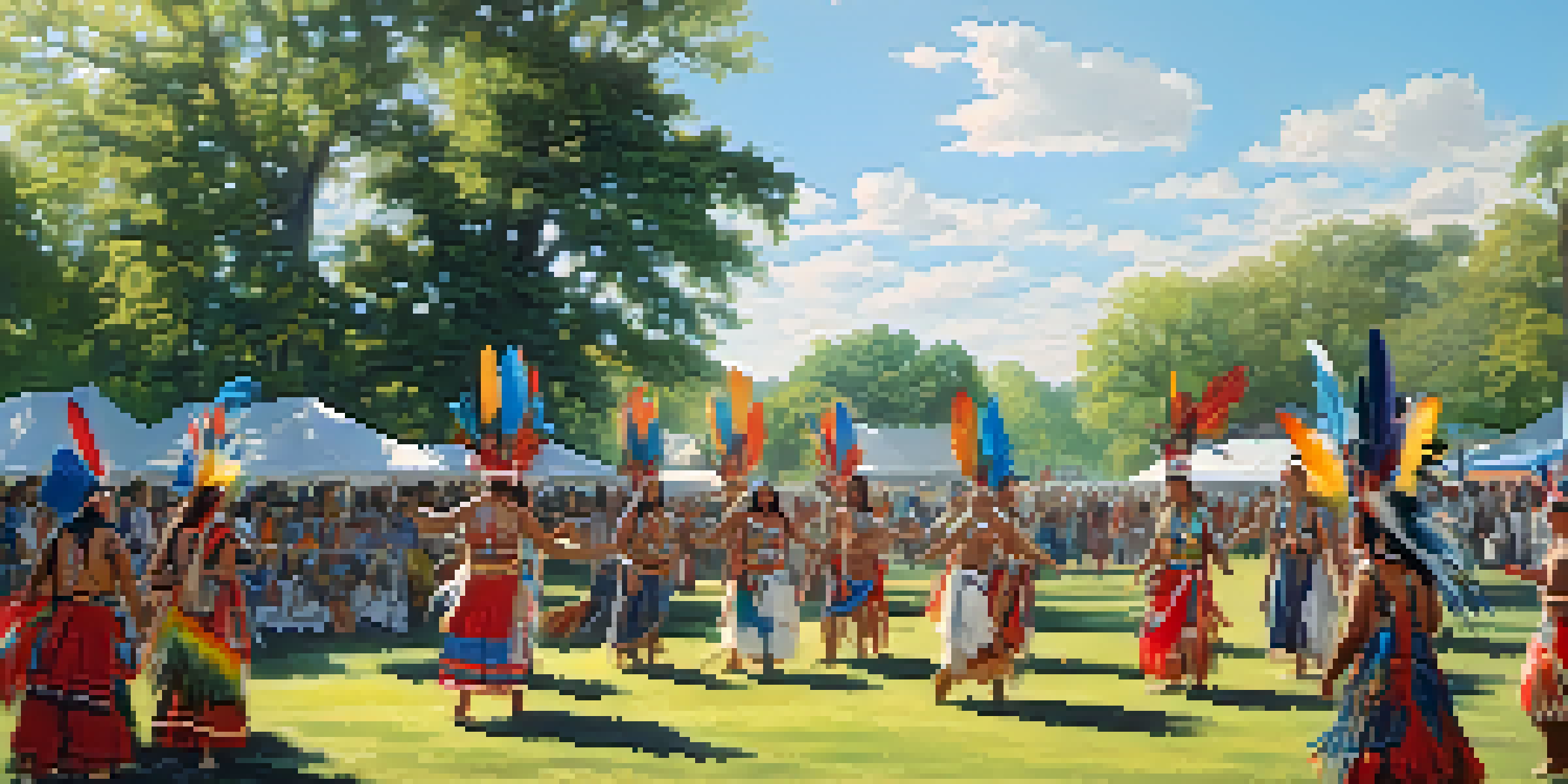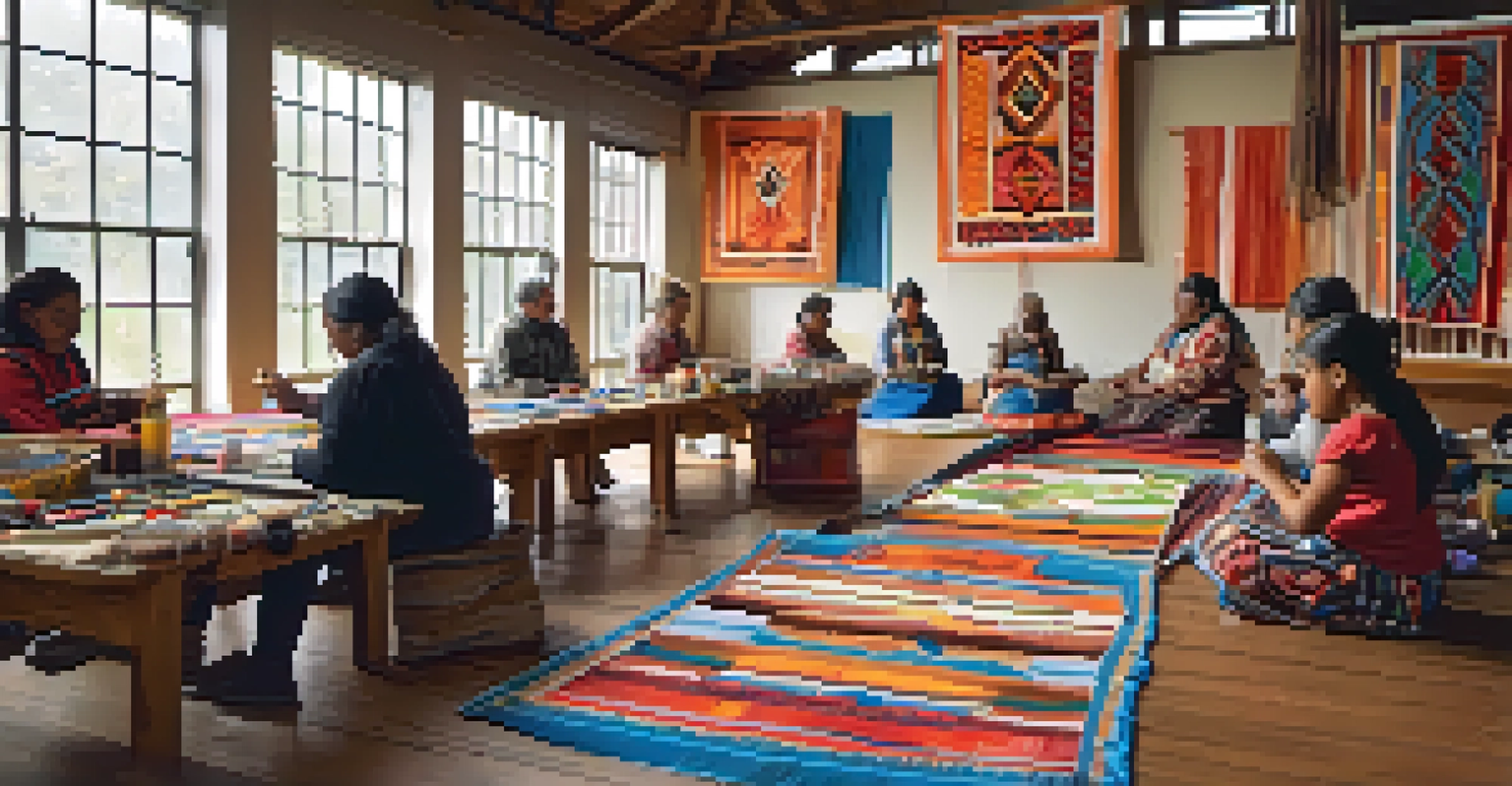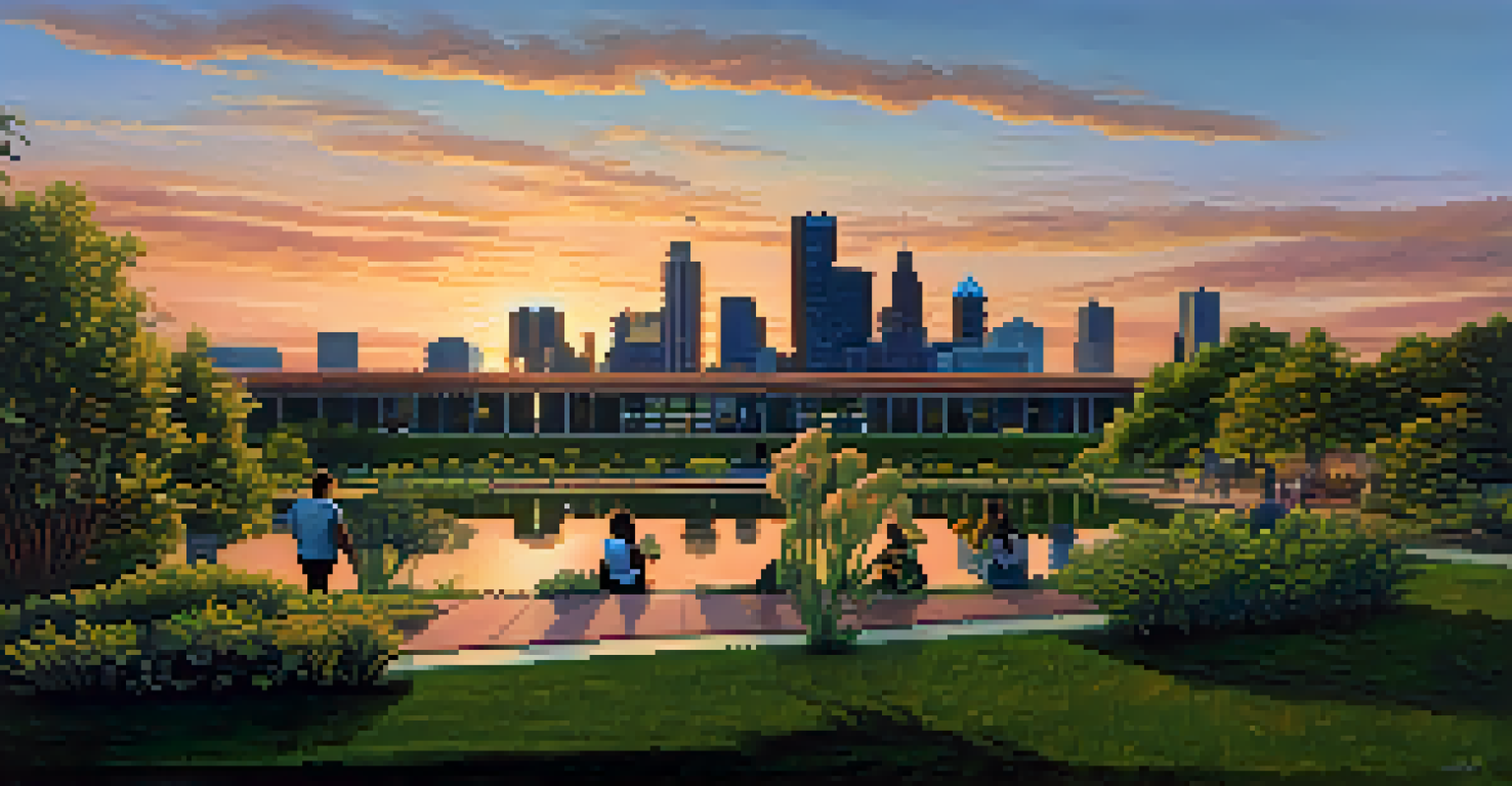Indigenous Voices: The Forgotten Communities of Detroit

The Rich Heritage of Indigenous Peoples in Detroit
Detroit's Indigenous history is often overshadowed by its industrial past, yet it plays a vital role in understanding the city’s identity. The area has been home to multiple Native American tribes, including the Ojibwe, Odawa, and Potawatomi, who have long-standing connections to the land. Their heritage is woven into the very fabric of the city, from place names to cultural practices that still resonate today.
Indigenous people have a right to their own history, culture, and identity, and this right must be respected in every community.
For many Indigenous people, Detroit represents both a community and a challenge. Urbanization has led to a significant loss of traditional lands, yet it has also fostered resilience among these communities. They have adapted to the urban environment while striving to maintain their cultural identity, which is crucial for future generations.
Celebrating this heritage is essential, as it not only acknowledges the past but also empowers Indigenous communities to reclaim their narratives. By recognizing their contributions, Detroit can foster a more inclusive environment that honors its diverse history.
The Impact of Urbanization on Indigenous Communities
Urbanization has had a profound impact on Indigenous communities in Detroit, often leading to the displacement of families and the erosion of cultural practices. As the city grew, many Native Americans migrated in search of better opportunities, but this also meant leaving behind traditional lifestyles and connections to the land. This shift has resulted in a complex relationship with urban life, blending modernity with the echoes of ancestral ways.

Moreover, the challenges of urban living can exacerbate existing issues, such as poverty and lack of access to resources. Many Indigenous residents face systemic barriers that hinder their ability to thrive in an urban setting. Yet, despite these challenges, there's a strong sense of community and activism among Indigenous people in Detroit, who work tirelessly to address these issues.
Urban Challenges for Indigenous People
Urbanization has displaced many Indigenous families in Detroit, leading to a complex relationship between modern life and traditional practices.
Community initiatives aimed at cultural preservation, education, and social justice have emerged as vital responses to urban challenges. Through collaborative efforts, Indigenous voices are being amplified, ensuring that their stories and needs are not forgotten amidst the hustle of city life.
Cultural Revitalization: Keeping Traditions Alive
Cultural revitalization is a key focus for Indigenous communities in Detroit, as it provides a means to reconnect with their roots while navigating the modern world. This includes traditional practices such as storytelling, music, dance, and crafts, which are essential for passing down knowledge and values. Workshops and community events often serve as platforms for sharing these traditions, fostering pride and unity.
Art is not a mirror to reflect reality, but a hammer with which to shape it.
An example of this revitalization can be seen in community gatherings, such as powwows, where Indigenous peoples come together to celebrate their heritage. These events not only showcase traditional dance and music but also serve as a space for education and cultural exchange. They invite both Indigenous and non-Indigenous individuals to engage and learn, promoting understanding and respect.
Additionally, local organizations are working to integrate Indigenous perspectives into educational curricula, ensuring that younger generations grow up with a strong sense of identity. By investing in cultural education, Detroit’s Indigenous communities are paving the way for a brighter future, where their history and traditions are valued and preserved.
The Role of Language in Cultural Identity
Language is a fundamental aspect of cultural identity, and for many Indigenous communities, it serves as a vessel for their history and worldview. In Detroit, efforts are underway to revive and preserve Indigenous languages, which have been diminished due to historical suppression. Language classes and immersion programs play a crucial role in teaching the younger generation, helping them connect with their heritage.
For instance, the revitalization of the Anishinaabe language has become a focal point for local initiatives. By learning the language, community members can better understand the stories, songs, and teachings that have been passed down through generations. This connection fosters a sense of belonging and cultural pride, reinforcing their identity within the urban landscape.
Cultural Revitalization Efforts
Indigenous communities in Detroit are actively working to keep their traditions alive through cultural events and educational initiatives.
Moreover, language revitalization efforts are not just about communication—they are about reclaiming autonomy and affirming cultural presence. As Indigenous languages flourish, so too does the hope for a vibrant future that honors the richness of their past.
Art and Expression as a Tool for Advocacy
Art has long been a powerful form of expression for Indigenous communities, and in Detroit, it serves as a tool for advocacy and cultural expression. Artists use various mediums—painting, sculpture, and performance—to share their stories and confront social issues affecting their communities. This artistic expression not only enriches the cultural landscape of Detroit but also raises awareness about the unique challenges faced by Indigenous peoples.
For example, local art exhibitions often highlight the works of Indigenous artists who address themes of identity, resilience, and social justice. These exhibitions create a platform for dialogue, allowing both Indigenous and non-Indigenous audiences to engage with these critical narratives. Art becomes a bridge, fostering understanding and empathy in a city that thrives on diversity.
Furthermore, collaborations between Indigenous artists and community organizations amplify their voices and create opportunities for growth. Through art, they can advocate for change, challenge stereotypes, and inspire future generations to embrace their heritage with pride.
Building Alliances for Social Justice
For Indigenous communities in Detroit, building alliances with other marginalized groups is essential for social justice. By forming coalitions, they can address shared concerns—such as housing, healthcare, and educational equity—while amplifying each other's voices. This solidarity fosters a sense of community and reinforces the idea that collective action can lead to meaningful change.
Local organizations are increasingly recognizing the importance of intersectionality in their advocacy efforts. By collaborating with Black, Latinx, and other communities, Indigenous leaders are working to dismantle systemic barriers that affect all marginalized groups. This approach not only strengthens their causes but also builds a more inclusive and equitable city.
Building Alliances for Justice
Collaborating with other marginalized groups is essential for Indigenous communities to address social justice issues and create meaningful change.
Additionally, these alliances create opportunities for cultural exchange and understanding, enriching the dialogue around social justice issues. Together, these communities can share resources, strategies, and support, paving the way for a more equitable future for all.
The Future of Indigenous Communities in Detroit
The future of Indigenous communities in Detroit hinges on preserving their culture while navigating modern challenges. As they continue to advocate for their rights and recognition, there's a growing awareness of their contributions to the city’s identity. By fostering a sense of pride and belonging, younger generations are empowered to carry forward the legacy of their ancestors.
Efforts to increase visibility and representation in local governance, education, and the arts are crucial steps toward a more inclusive future. Community leaders are actively engaging with policymakers to ensure that Indigenous voices are heard in decisions affecting their lives. This engagement is vital for creating policies that respect and uplift Indigenous rights.

Ultimately, the journey toward reconciliation and recognition is ongoing. As Detroit embraces its diverse heritage, the stories and contributions of Indigenous communities must be celebrated, ensuring that they are no longer forgotten but rather honored as integral members of the city's fabric.